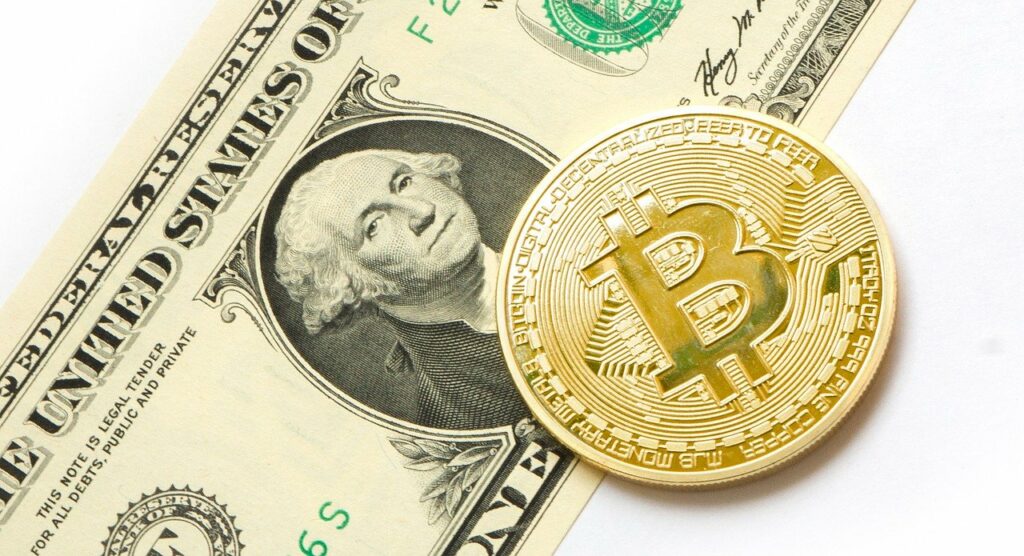Since its inception in 2009, Bitcoin has evolved from a niche digital curiosity to a mainstream financial instrument. Over the years, it has inspired the creation of an entire crypto-ecosystem, including altcoins, derivatives, and advanced DeFi solutions. With multiple regulatory precedents already in place and significant institutional involvement, the prospect of outright banning Bitcoin appears increasingly infeasible. This article dives into the factors affirming why a blanket prohibition on Bitcoin is improbable, exploring regulatory precedents, legislative acceptance, and how intertwined digital assets have become with our global economic framework.
1. Early Regulatory Precedent: Bitcoin as a Commodity
1.1 CFTC’s Stance on Bitcoin
A key milestone for Bitcoin’s legal status came in 2015, when the Commodity Futures Trading Commission (CFTC) recognized Bitcoin as a commodity. During a case involving Derivabit (a product of Coinflip), the CFTC concluded that Bitcoin fell under its regulatory purview, akin to gold or other tangible commodities. Consequently, the Commission took action because Derivabit was not in compliance with then-existing requirements.
Why It Matters
This event set a foundational precedent: If Bitcoin is considered a commodity by a powerful regulatory body, banning it would be more complex. U.S. commodity laws provide a structure for oversight rather than outright prohibition, making a total shutdown of Bitcoin less likely.
2. Why a U.S. Ban Seems Unviable
2.1 Extensive Legal and Market Precedent
From the CFTC’s classification to various court rulings, Bitcoin’s identity as a legitimate financial asset has gained strong legal acknowledgment. Reversing this recognition would entail dismantling extensive jurisprudence and a thriving market infrastructure—an enormous undertaking with potential backlash for both consumer rights and economic interests.
2.2 Mainstream Players in Crypto
Bitcoin and other digital assets are woven into the strategies of many prominent financial institutions and tech companies. Additionally, institutional adoption—ranging from hedge funds to payment processors—implies deep, cross-sector involvement. A ban would spark not only legal disputes but also major disruptions across markets reliant on crypto for portfolio diversification or innovative payment solutions.
3. Gemini’s Perspective on Regulatory Oversight
3.1 Tyler Winklevoss: Ban is “Unlikely”
According to Tyler Winklevoss, Co-Founder and CEO of Gemini—a New York-regulated crypto exchange—legislation has progressed beyond the point of imposing a ban on Bitcoin. Regulators, as Winklevoss observes, increasingly see Bitcoin as an opportunity rather than a threat, especially in capitalist jurisdictions with free markets.
3.2 Regulators as Stakeholders
Winklevoss also highlights that some regulators may hold Bitcoin or view it as valuable. As the industry matures, the lines between crypto advocates and regulators blur: knowledge of crypto’s benefits is growing within government circles, fostering balanced oversight instead of draconian bans.
4. The Global Regulatory Landscape
4.1 Europe, the U.K., and Singapore
Outside the U.S., other financial hubs are equally recognizing Bitcoin’s potential:
- Europe and the U.K.: Though cautious about consumer protection, these jurisdictions have not signaled outright bans, preferring to refine regulatory frameworks.
- Singapore: The Monetary Authority of Singapore (MAS) is overseeing a licensing process for crypto businesses, demonstrating acceptance of digital assets under strict compliance guidelines.
4.2 Diminishing Threat of Outright Bans
Jurisdictions with free and open markets tend to see Bitcoin and crypto as a growth opportunity, promoting technology innovation and financial inclusion. Such a stance is hard to reverse without negative economic consequences.
5. The Challenge of Banning a Global Network
5.1 Internet-Wide Restrictions
Winklevoss underscores that fully banning Bitcoin essentially requires stringent controls on the internet, since Bitcoin nodes and transaction verifications operate globally across decentralized networks. Restricting or filtering these nodes comprehensively would entail severe interventions affecting broader economic and communications infrastructure.
5.2 Crypto’s Embedded Influence
From major retailers accepting Bitcoin payments to crypto ATMs appearing worldwide, Bitcoin’s ecosystem is too vast and decentralized. Businesses and individuals rely on digital assets for cross-border remittances, stores of value, and other financial activities. Depriving them of this technology would risk undermining innovation.
6. Broader Market Sentiment: Crypto as Opportunity
6.1 Investor Demand and Education
In the U.S. and other advanced economies, demand for Bitcoin soared amid macroeconomic concerns, such as inflation or currency devaluation. Educated investors appreciate Bitcoin’s utility as a non-sovereign store of value and approach it as a legitimate asset class for portfolio diversification.
6.2 Enterprise-Level Adoption
Major corporations now hold Bitcoin on their balance sheets, seeing it as an inflation hedge or strategic reserve asset. Other crypto protocols and digital assets integrate with mainstream payment rails—like PayPal—further embedding the sector into daily commerce. Such institutional anchors further dampen any chance of a broad-based ban.
Conclusion
Given the deep legal precedents, institutional involvement, and decentralized network infrastructure, a Bitcoin ban appears more improbable than ever. From Tyler Winklevoss’s perspective at Gemini to the recognition by major regulators like the CFTC, the notion that authorities could single-handedly remove Bitcoin from operation is unrealistic and would require crippling internet-level constraints. As the crypto economy continues expanding—encompassing everything from licensed exchanges to mainstream adoption—policy efforts will likely revolve around sensible regulations and oversight, not prohibition.
In essence, Bitcoin has advanced beyond a stage where a simple legislative act could dismantle it. The asset stands integrated into the global financial fabric, with regulators increasingly acknowledging its legitimate role. Rather than resorting to outright bans, governments are apt to keep refining their frameworks—balancing consumer protection with the thriving potential of cryptocurrency technologies.
To learn more about the innovative startups shaping the future of the crypto industry, explore our article on latest news, where we delve into the most promising ventures and their potential to disrupt traditional industries.
Disclaimer: The information provided is not trading advice, Bitcoinworld.co.in holds no liability for any investments made based on the information provided on this page. We strongly recommend independent research and/or consultation with a qualified professional before making any investment decisions.




